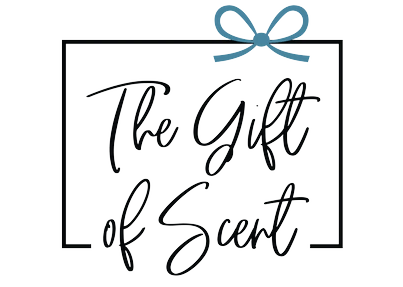Essential oils are highly concentrated natural extracts that are distilled from various leaves, flowers, and stems of plants. Essential oils have a variety of health benefits, from skin care to stress relief. The most common way to use essential oils is to inhale them, both for their amazing scent and their therapeutic properties. But they can also be used in diffusers and humidifiers, as well as diluted with a carrier oil and applied to the skin.
Essential oils have a vast range of medicinal and therapeutic properties. From alleviating anxiety to easing pain, essential oils are quickly becoming the at-home method of healing for many ailments. They have also garnered recognition for their ability to improve mood and promote general well-being. Essential oils have also been shown to promote healthy sleep, relieve stress, and alleviate aches and pains. In addition, essential oils can improve skin conditions, help treat the common cold and respiratory issues, and encourage healthy digestion.
Let’s look at some of the ways you can use essential oils and how to use them safely.
You have different options on how you choose to reap the benefits of essential oils:
Diffuser
Inhalation
Dry evaporation
In a Bath or shower
Applied directly to the skin

How to use essential oils with a diffuser
A diffuser is a device that breaks essential oils down into smaller molecules, dispersing them into the air for a pleasant or calming effect—depending on the oil that's been put into the diffuser. This option is great for filling an entire room with your favorite scent or for aromatherapy benefits where the scent molecules are inhaled and trigger responses in the brain that send healing to the body. There are several types of diffusers that you can use for this. Some popular types of essential oil diffusers include ceramic, electric and ultrasonic. Always follow the manufacturer’s instructions to ensure proper safety.
Inhaling essential oils
The quickest and easiest method of inhalation is to just open a bottle of pure essential oil and inhale deeply a few times through your nose. The use of essential oils in this manner can provide instant pleasure or relief from any discomfort or ailment.
Dry evaporation of essential oils
For this method simply add a few drops of the essential oil to a cotton ball or fabric material and hold it to your nose and inhale or allow the scent to disperse naturally. You can also add the oil to your pillowcase, sheets or towels for added freshness or to induce relaxation.

How to use essential oils in a bath or shower
Dilute a few drops of essential oils with a carrier oil and put it in your bathwater to help you unwind or prepare an essential oil salt bath to relieve your tired feet. You can get creative and add a few drops of oil to your body wash, shampoo, or conditioner. Using essential oils on your skin or in your hair and beauty products is a natural and effective way to keep your personal care routine without using products made with chemicals and hydrogenated oils.

How to use essential oils on your skin
Essential oils are highly potent and have the potential to irritate the skin if not used properly. Diluting essential oils prior to topical use helps minimize the risk of an adverse skin reaction. Your skin might love essential oils and be able to tolerate them, but if you notice a rash, little bumps, or just itchy skin -- take a break and gently wash the affected area with water. It is always a good idea to do a small test patch on your skin to see if any irritation forms.
Dilution is the most important factor when it comes to using essential oils safely in skin care and massage. Dilute the essential oil with a carrier oil and apply the mixture to your skin. A carrier oil is an oil that is used to dilute essential oils prior to application. Since essential oils are extremely potent, these carrier oils “carry” the essential oil to your skin and help prevent an allergic reaction. They are usually made from vegetables, nuts or seeds and are a great addition to your beauty routine, because they help nourish and moisturize your hair and skin. Because carrier oils are usually unscented or lightly scented, they don’t interfere with the therapeutic properties or the fragrance of the essential oil. Some common carrier oils are coconut, jojoba and almond oil.
When diluting essential oils with a carrier oil, it’s important to follow these dilution guidelines.

For children, use .25%-1.5% dilution.
Coconut oil is not only a great moisturizer, but it is also an effective carrier oil for essential oils. It is easily absorbed into skin and hair and the perfect carrier option for topical application to areas of discomfort like your temples or abdomen or added to your conditioner to help moisturize your hair.
Jojoba oil comes from the seeds of the jojoba plant and has a mild, nutty aroma. It is thought to closely simulate the skin’s natural oil. Jojoba oil absorbs easily in the skin and doesn’t clog pores, so this makes it a good carrier oil option for massage oils, facial moisturizers, and bath oils.
Sweet almond oil is made from the kernels of sweet almonds and has a strong, nutty aroma. This oil is lightweight and absorbs easily, and is a great moisturizer for dry, flaky skin. Sweet almond oil is one of the most popular carrier oils for skin care. It’s great to use in massage oils, bath oils, and soaps.
Whether you are new to using essential oils or are currently benefiting from them, always use caution, especially when you first start trying them. Keep your eye out for any adverse reactions and be aware of potency.
The Gift of Scent has both 100% Pure and Organic Essential Oils to choose from. Explore your favorite scents or create your own fragrant healing oils.
Michelle for TheGiftofScent.com!
